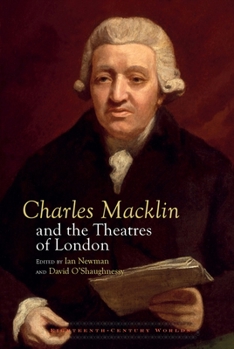Charles Macklin and the Theatres of London
Select Format
Select Condition 
Book Overview
Charles Macklin (1699?-1797) was one of the most important figures in the eighteenth-century theatre. Born in Ireland, he began acting in London in around 1725 and gave his final performance in 1789 - no other actor can claim to have acted across seven decades of the century, from the reign of George I to the Regency Crisis of 1788. He is credited alongside Garrick with the development of the natural school of acting and gave a famous performance of Shylock that gave George II nightmares. As a dramatist, he wrote one of the great comic pieces of the mid-century (Love la Mode, 1759), as well as the only play of the century to be twice refused a performance licence (The Man of the World, 1781). He opened an experimental coffeehouse in Covent Garden, he advocated energetically for actors' rights and copyright reform for dramatists, and he successfully sued theatre rioters. In short, he had an astonishingly varied career.
With essays by leading experts on eighteenth-century culture, this volume provides a sustained critical examination of his career, illuminating many aspects of eighteenth-century theatrical culture and of the European Enlightenment, and explores the scholarly benefit - and thrill - of restaging Macklin's work in the twenty-first century.




